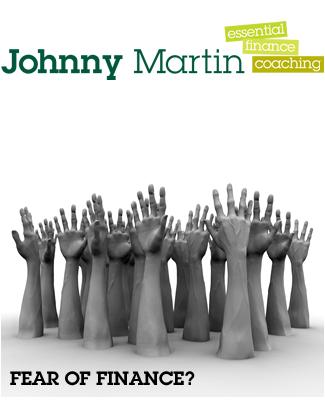Once again Matthew Rock from Real Business ably chaired our panel of food entrepreneurs in front of a full conference centre audience.
 First up was Eric Lanlard, otherwise known as Cake Boy, and famous for having baked Madonna’s wedding cake.
First up was Eric Lanlard, otherwise known as Cake Boy, and famous for having baked Madonna’s wedding cake.
Having given him a lightning tour of the Business & IP Centre a few minutes earlier, I can safely say that he is a charming man.
As is often the way with successful entrepreneurs (and in fact many other success stories), his passion for baking had started early. In his case from the age of six. With encouragement from his mother he began to sell his produce from outside their house. And was beginning to do well… until his mother started charging him for the ingredients.
The next stage was to take up an apprenticeship at the age of 18, after having identified the best place for him to learn his craft. From day one he knew that this was what he would want to do for the rest of his life. Subsequently he was taken on the by famous Roux Brothers who revolutionised British Cuisine in the UK, and eventually became a ‘Roux Boy’.
He finally broke away and set up in business on his own, managing to bag Fortnum & Mason as an early client.
Here are some of his business tips:
• You have to work bloody hard to make a success in business.
• Always refuse to take the cheaper option when pressured. Stay with quality.
• Tight finance is important.
• Look after your suppliers too.
• Without your staff you are nothing. Invest in them as much as you can afford.
‘Five am tomorrow morning (like every day) you will find me in my kitchen.’
 Next came Jennifer Irvine who is the founder of The Pure Package, the gourmet food service offering carefully tailored, freshly prepared and healthily balanced meals and snacks delivered daily to customers.
Next came Jennifer Irvine who is the founder of The Pure Package, the gourmet food service offering carefully tailored, freshly prepared and healthily balanced meals and snacks delivered daily to customers.
I had also given her a whistle-stop tour of the Centre earlier on in the evening, and was pleasantly surprised to discover that she had been using our information at the beginning of her business eight years ago. She was very complimentary about the library enquiry staff who helped her at that time.
She said she started her business because she enjoyed food, and was upset that so many of us now associate eating with weight gain and poor health.
From the beginning she was averse to taking on loans or even outside investors, and literally started her business from her kitchen.
Her toilet became research her study, as it was the only quiet place away from her young children.
She contacted journalists who wrote about healthy eating. This resulted in a story in the Evening Standard which led to a big increase in demand for her products.
She needed finance to grow to meet this upsurge in customers, but was still against going to the bank. Instead she offered her customers the opportunity to get a discount in exchange for paying in advance. This generated enough cash to buy the new equipment she needed.
In the early days she had to do everything in the business including the classic of answering her phone as receptionist and then passing it on to herself as manager. Her response to curious customers was that ‘we all sound the same here’.
She also drove the delivery runs for the food between 12 midnight and six in the morning.
Having such a deep understanding of the business means she can still help her staff, even when away from work for a while.

Last, but by no means least came Richard Reed, a co-founder of Innocent, the No.1 smoothie brand in Europe. The business was started in 1999 with and two college friends and has grown to a turnover of over £100m today.
Richard also started in business at a young age, when he began washing windows for his neighbours at the age of eight. However, a summer job picking up dog biscuits in a pet food factory soon reminded him of the joys of working for himself, and led him to set up a summer gardening business called Two Men Went to Mow, employing his school friends.
He met the co-founders of Innocent at college. After discussing the idea of starting their own business on many occasions, they finally gave themselves one weekend to agree an idea. The objective was to make life a little bit easier and a little bit better.
They came up with the concept of ‘The Amazing Electric Bath’. However, there was a slight problem relating to combining water and electricity in one product. There was a real danger they would end up making their customers lives quite a bit shorter, instead of little bit easier and a little bit better!
When looking to develop a new product or service he said you should make sure you know your target audience well. They looked to themselves for inspiration. Their need was for healthy fast food and snacks, to replace their unhealthy pizza and beer habits. The best test is to ask if you would spend your own money on the product or service. They brought £500 of fruit and hired a stall at a music festival. Next to the stall was a Yes bin and No bin. They promised themselves that if the Yes bin was full at the end of the day, they would give up their day jobs and concentrate on the business. In the end there were only a few empty bottles in the No bin, which their parents later admitted they had put there to put them off. Even that wasn’t enough, so they spun a coin which came up tails three times in a row to convince them.
Consequently the last 12 years have been much more difficult than expected. But also the most rewarding time of his life.
Here are few of Richard’s business truisms:
• The product is king, and has to be better than anyone else’s on the market.
• You have to decide when to move from making yourself to outsourcing the product. Started themselves, but found a supplier eventually. Running a factory is a very demanding activity in its own right, and might not give you enough time for developing your brand.
• Make sure you understand your numbers, in particular your gross margin and where it will be spent.
• You have to get lucky, but you also have to be tenacious.
• If your team share the same values (but have complementary skills), you will help each other through the tough times that will inevitably come along.
After the panel sessions Matthew managed a lengthy question and answer session due to the sheer level of demand from the audience.
How did Innocent get funding?
Richard revealed that after months of trying to get funding for Innocent they reached a last chance saloon, which resulted in a desperate email titled ‘Does anyone know anyone rich?’
There were working on the theory Six Degrees of Kevin Bacon would apply.
The email generated two responses in total, one didn’t go anywhere , and one which ended up giving them the money to get the business started.
How did Innocent get into supermarkets?
Supermarkets are generally interested in new products on their shelves.
Innocent started with a ten store listing in Waitrose. But it took seven years to reach blanket supermarket coverage by organic growth.
Can you talk about supplier relationships?
Don’t rely on one supplier. Have a plan B ready and warmed up. The Innocent bottle supplier switched to Coke at short notice which caused much grief.
Two instrumental business books recommended by Richard Reed:
Eating the Big Fish: How Challenger Brands Can Compete Against Brand Leaders by Adam Morgan.
Good to Great: Why Some Companies Make the Leap… and Others Don’t by Jim Collins
How did you communicate your brand?
Eric Lanlard started with Laboratoire 2000, but due to pronunciation problems (including abattoir) it ended up as Lab 2000.
His new joint venture with Patrick Cox will be called Cox, Cookies and Cakes, partly because it will be based in an old sex shop in London’s Soho district.
The Innocent name was designed to communicate natural, pure and unadulterated.
Simplification and exaggeration are key to branding.
Richard defended the sale of share to Coca Cola. Although they now own the majority of the shares, the Innocent founders have maintained control of the business. Selling their products through McDonald’s stores caused ten times more bad press.
<!–[if !mso]> <! st1:*{behavior:url(#ieooui) } –>
The secret ingredient: the recipe for success as a food and drink entrepreneur
Once again Matthew Rock from Real Business ably chaired our panel of food entrepreneurs in front of a full conference centre audience.
First up was Eric Lanlard, otherwise known as Cake Boy, and famous for having baked Madonna’s wedding cake.
Having given him a lightening tour of the Business & IP Centre a few minutes earlier I can safely say that he is a charming man.
As is often the way with successful entrepreneurs (and in fact many other success stories), his passion for baking had started early. In his case from the age of six. With encouragement from his mother he began to sell his improving products outside their house. And was beginning to do well… until his mother started charging him for the ingredients.
The next stage was to take up an apprenticeship at the age of 18, after having identified the best place for him to learn. From day one he knew that this was what he would want to do for the rest of his life. Subsequently he was taken on the by famous Roux Brothers ??? in the UK, and eventually became a ‘Roux Boy’ ???
Eventually he set up in business on his own and managed to bag Fortnum and Mason as an early client.
Here are some of his business tips:
· You have to work bloody hard to make it a success in business.
· Refused to take the cheaper option when pressured. Stayed with quality.
· Tight finance is important.
· Look after your suppliers too.
· Without your staff you are nothing. Invest in them.
· 42 years old in a happy place.
· Partnership with Patrick Cox to open a chain.
· Five am (like every day) you will find me in my kitchen.
Next came Jennifer Irvine who is the founder of The Pure Package, the gourmet food service offering carefully tailored, freshly prepared and healthily balanced meals and snacks delivered daily to customers.
I had also given her a whistle-stop tour of the Centre earlier on in the evening, and was pleasantly surprised to discover that she had been using our information at the beginning of her business eight years ago. She was very complimentary about the library enquiry staff who helped her at that time.
She said she started her business because she enjoyed food, and was upset that so many of us now associate eating with weight gain and bad health.
From the beginning she was averse to taking on loans or even outside investors and literally started her business from her kitchen.
Her toilet became research her study as it was the only quiet place away from her young children.
She contacted journalists who wrote about healthy eating. This resulted in a story in the Evening Standard which led to a big increase in demand for her products.
She needed finance to grow to meet this upsurge in customers, but was still against going to the bank. Instead she offered her customers the opportunity to get a discount in exchange for paying in advance. This generated enough cash to buy the new equipment she needed.
In the early days she had to do everything in the business including classic of answering of answering the phone as receptionist and then passing it on to herself as manager. Her response to curious customers was that ‘we all sound the same here’.
She also drove the delivery runs for the food between 12 midnight and six in the morning.
Having such a deep understanding of the business means she can still help her staff even when away from work for a while.
Last, but by no means least came Richard Reed a co-founder of Innocent, the No.1 smoothie brand in Europe. The business was started in 1999 with and two college friends and has grown to a turnover of over £100m today.
Richard also started in business at a young age, when he began washing windows for his neighbours at the age of eight. However, a summer job picking up dog biscuits in a pet food factory soon reminded him of the joys of working for himself, and led him to set up a summer gardening business called Two Men Went to Mow, employing his school friends.
He met the co-founders of Innocent at college. After discussing the idea of starting their own business on many occasions, they finally gave themselves one weekend to agree an idea. The objective was to make life a little bit easier and a little bit better.
They came up with the concept of ‘The Amazing Electric Bath’. However, there was a slight problem relating to combining water and electricity in one product. There was a real danger they would end up making their customers lives quite a bit shorter!
When looking to develop a new product or service he said you should make sure you know your target audience well. They looked to themselves for inspiration.
Their need was for healthy fast food and snacks, to replace their unhealthy pizza and beer habits.
The best test is to ask if you would spend your own money on the product or service.
They brought £500 of fruit and hired a stall at a music festival. Next to the stall was a Yes bin and No bin. They promised themselves that if the Yes bin was full at the end of the day, they would give up their day jobs and concentrate on the business. In the end there were only a few empty bottles in the No bin, which their parents later admitted they had put there to put them off.
Even that wasn’t enough, so they spun a coin which came up tails three times in a row to convince them.
Consequently the last 12 years have been much more difficult than expected. But also the most rewarding time of his life.
Here are few of Richard’s business truisms:
· The product is king, and has to be better than anyone else’s on the market.
· You have to decide when to move from making yourself to outsourcing the product. Started themselves, but found a supplier eventually. Running a factory is a very demanding activity in its own right, and might not give you enough time for developing your brand.
· Make sure you understand your numbers, in particular your gross margin and where it will be spent.
· You have to get lucky, but you also have to be tenacious.
· If your team share the same values (but have complementary skills), you will help each other through the tough times that will inevitably come along.
After the panel sessions Mathew managed a lengthy question and answer session due to the sheer demand from the audience.
How did Innocent get funding?
Richard revealed that after months of trying to get funding for Innocent they reached a last chance saloon, which resulted in a desperate email with titled ‘Does anyone know anyone rich?’
There were working on the theory that the Six Degrees of Kevin Bacon would apply.
The email generated two responses in total, one didn’t go anywhere , and one which ended up giving them the money to get the business started.
How did Innocent get into supermarkets?
Supermarkets are generally interested in new products on their shelves.
Innocent started with a ten store listing in Waitrose. But it took seven years to reach blanket supermarket coverage by organic growth.
Can you talk about supplier relationships?
Don’t rely on one supplier. Have a plan B ready and warmed up. The Innocent bottle supplier switched to Coke at short notice.
Instrumental business books recommended by Richard Reed;
Eating the big fish ???
Good to great ???
How did you communicate your brand?
Eric Lanlard started with Laboratoire 2000, but due to pronunciation problems (including abattoir) it ended up as Lab 2000.
His new joint venture with Patrick Cox will be called Cox, Cookies and Cakes, partly because it will be based in an old sex shop in London’s Soho district.
The Innocent name was designed to communicate natural, pure and unadulterated.
Simplification and exaggeration are key to branding.
Richard defended the sale of share to Coca Cola. Although they now own the majority of the shares, the Innocent founders have maintained control of the business. Selling their products through McDonalds stores caused ten times more bad press.
 I have been watching the Crowdfunding scene for quite a few years now. It has now grown into a important source of money for many start-ups. It is also a great way to test the market for new ideas. Following the Lean start-up approach we advocate in the Business & IP Centre.
I have been watching the Crowdfunding scene for quite a few years now. It has now grown into a important source of money for many start-ups. It is also a great way to test the market for new ideas. Following the Lean start-up approach we advocate in the Business & IP Centre.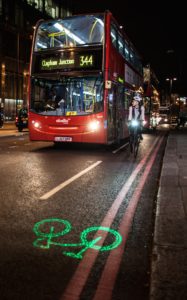 Also, it came from the Blaze company founded by Emily Brooke and Philip Ellisby. They had previously used crowdfunding to launch their revolutionary front safety light for cycles. The original Blaze light combines a very bright white light with a green laser, which projects a symbol of a bike onto the road several meters ahead. The idea is to make bikes more visible to cars and particularly large vehicles turning left at junctions. A high proportion of cycle accidents are caused by drivers being unaware of a rider coming-up on the inside.
Also, it came from the Blaze company founded by Emily Brooke and Philip Ellisby. They had previously used crowdfunding to launch their revolutionary front safety light for cycles. The original Blaze light combines a very bright white light with a green laser, which projects a symbol of a bike onto the road several meters ahead. The idea is to make bikes more visible to cars and particularly large vehicles turning left at junctions. A high proportion of cycle accidents are caused by drivers being unaware of a rider coming-up on the inside.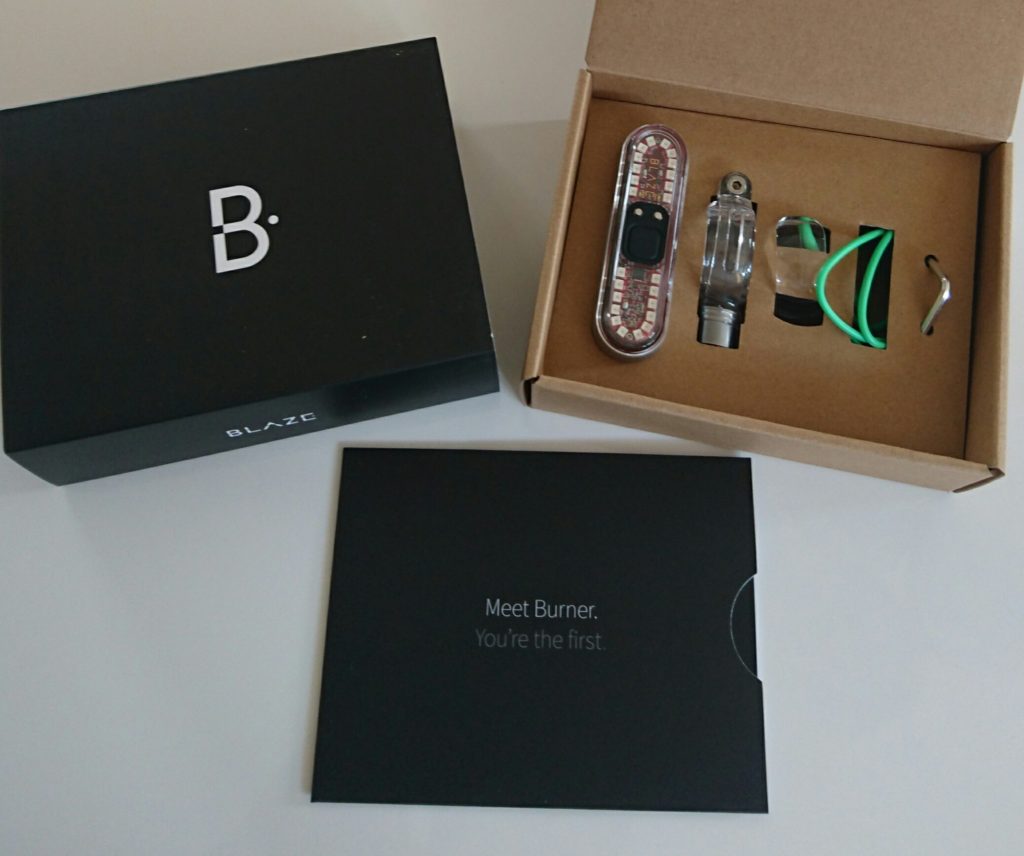 Since the campaign closed, the team have been on something of a roller-coaster ride. With quite a few technical and supplier problems along the way. This meant the original production date of April slipped by several months. The team kept the backers updated with the issues and delays. So it was with great delight that I finally got to open the package above this week. Just in time for use during the dark evening rides home.
Since the campaign closed, the team have been on something of a roller-coaster ride. With quite a few technical and supplier problems along the way. This meant the original production date of April slipped by several months. The team kept the backers updated with the issues and delays. So it was with great delight that I finally got to open the package above this week. Just in time for use during the dark evening rides home.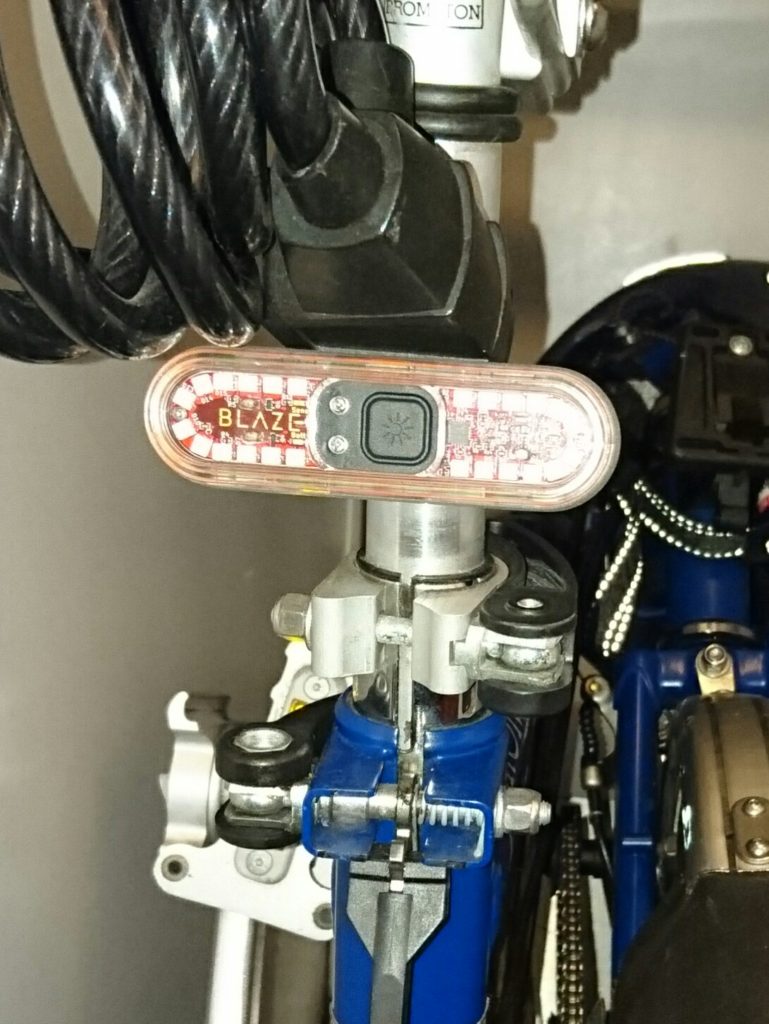 It is early days in terms of usage, but so far I am very happy with the light and the quality of its components, such as the flexible mounting bracket and powerful magnetic attachment.
It is early days in terms of usage, but so far I am very happy with the light and the quality of its components, such as the flexible mounting bracket and powerful magnetic attachment.
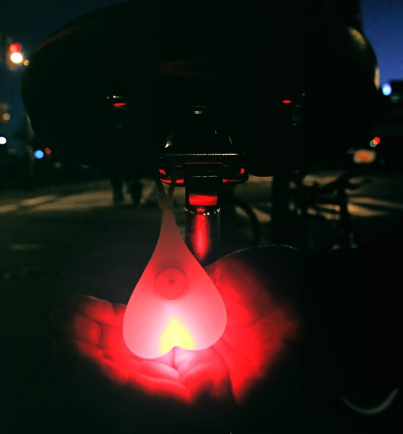





 For any of you who have watched entrepreneurs pitching their business on the
For any of you who have watched entrepreneurs pitching their business on the 

